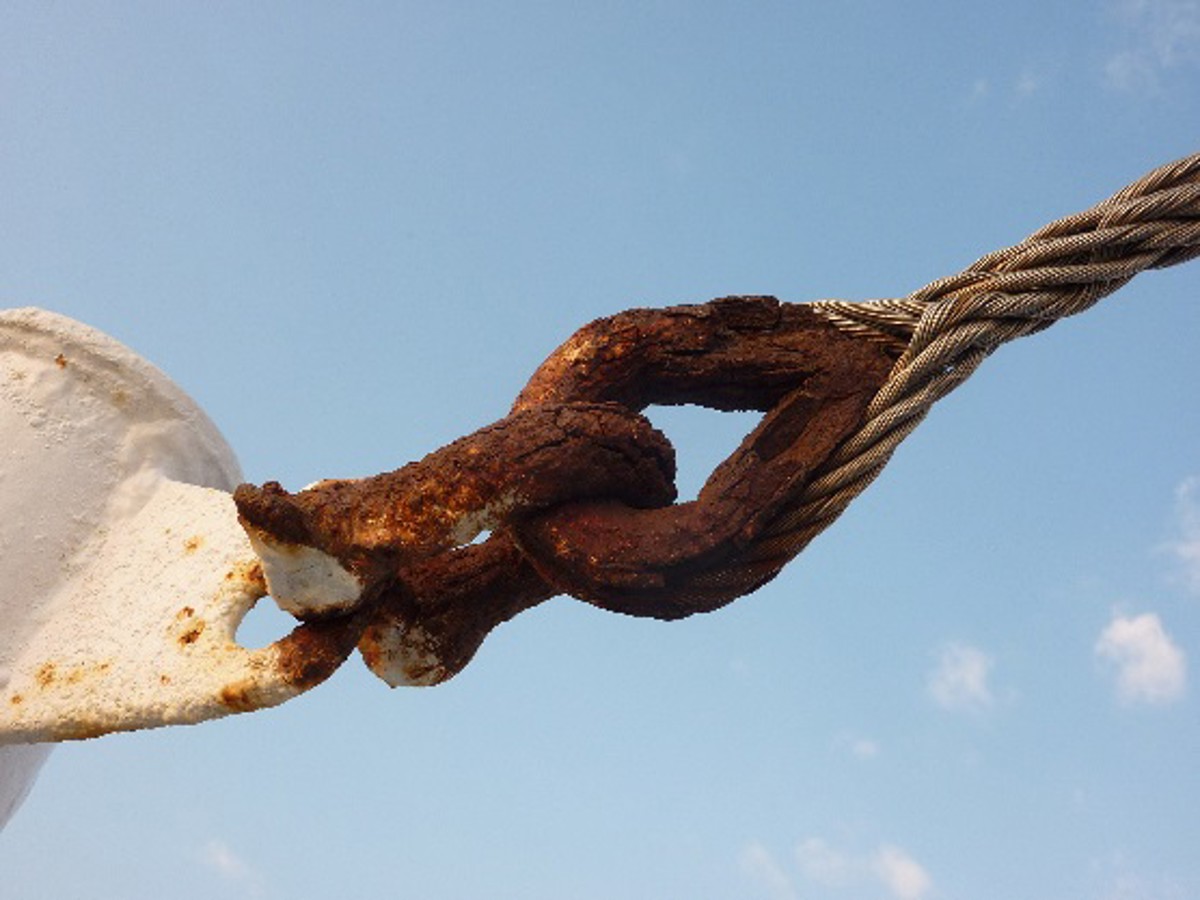Mast head securing wire parted
- Safety Flash
- Published on 10 August 2016
- Generated on 20 February 2026
- IMCA SF 21/16
- 1 minute read
Jump to:
A member has reported an incident in which one of the wire stays securing a mast head, parted.
What happened?
A deck officer on watch heard a loud metal banging sound on the monkey island deck. Immediately both the radar switched off and someone was sent to investigate. One set of mast head securing wires (the port side) had parted from the long bottle screw and the strop had become entangled with a radar scanner. As a result, there was damage to the front side (radiation side) of the radar scanner cover, and the lower lamp assembly for the main mast head lights was damaged. The entangled strop was cleared away; temporary repairs were made to the radar scanner, and both radars tried out again.

The root cause of the incident was inadequate maintenance and inspection – failure to notice corrosion and impending failure.
Our member suggested that all similar securing arrangements should be inspected and tightened periodically and renewed or replaced, as necessary. Extra attention should be paid to all lashing and securing arrangement when heavy weather is prevalent.
Related Safety Flashes
-
IMCA SF 10/15
16 July 2015
-
IMCA SF 07/15
29 May 2015
-
IMCA SF 04/10
14 July 2010
IMCA Safety Flashes summarise key safety matters and incidents, allowing lessons to be more easily learnt for the benefit of the entire offshore industry.
The effectiveness of the IMCA Safety Flash system depends on the industry sharing information and so avoiding repeat incidents. Incidents are classified according to IOGP's Life Saving Rules.
All information is anonymised or sanitised, as appropriate, and warnings for graphic content included where possible.
IMCA makes every effort to ensure both the accuracy and reliability of the information shared, but is not be liable for any guidance and/or recommendation and/or statement herein contained.
The information contained in this document does not fulfil or replace any individual's or Member's legal, regulatory or other duties or obligations in respect of their operations. Individuals and Members remain solely responsible for the safe, lawful and proper conduct of their operations.
Share your safety incidents with IMCA online. Sign-up to receive Safety Flashes straight to your email.

